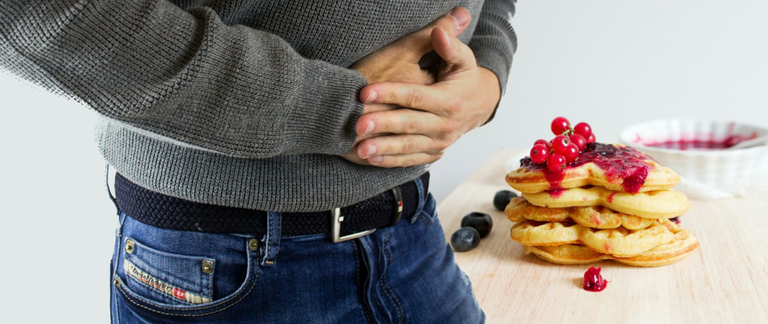Battle at the Gastric Front: H. pylori and stomach alcer
In my environment, I have seen people affected with ulcers of the stomach. Basically, people usually assume that ulcers are caused due to not eating on time or not eating at all. Some even go far by mentioning too much pepper in the food as one of the things that evoke ulcers. But then, as a medical student, you know what is right. Let's have a review of what causes ulcers and why it happens.

So, here's the lowdown on stomach ulcers - those pesky sores that can really throw off your digestion system. Contrary to popular belief, the main culprit behind stomach ulcers is not the timing of your meals or the spiciness of your food. Instead, a tiny troublemaker called Helicobacter pylori (H. pylori) takes the center stage in the stomach ulcer story.
H. pylori, a sneaky bacterium that likes to set up camp in the lining of your stomach, can weaken the protective barrier that shields your stomach from its own digestive acids. When this barrier is compromised, the stomach lining becomes more susceptible to damage, leading to the formation of ulcers. So, it's not about the clock or the spice level, but rather the presence of this bacterial troublemaker that shakes things up in your stomach.
Another important question is why do H. pylori house around the lining of stomach
The process of how Helicobacter pylori (H. pylori) sets up camp in the lining of the stomach is actually quite fascinating and a bit sneaky. H. pylori has evolved clever strategies to survive and thrive in the harsh acidic environment of the stomach.
One key factor that allows H. pylori to colonize the stomach lining is its unique shape and structure. This bacterium has a spiral or helical shape, which enables it to burrow into the mucus layer that coats the stomach wall. Within this protective mucus layer, H. pylori can evade the acidic gastric environment and establish a foothold in the stomach lining.
Moreover, H. pylori produces enzymes and proteins that help it adhere to the surface of stomach cells, further cementing its position within the gastric mucosa. By attaching to the cells of the stomach lining, H. pylori can avoid being flushed away by the movement of stomach contents and instead stay put to do its mischief.
Once H. pylori has successfully attached to the stomach lining, it employs various mechanisms to manipulate the surrounding environment to its advantage. For example, H. pylori can disrupt the protective barrier that lines the stomach, making the underlying tissues more vulnerable to damage from gastric acids.
Additionally, H. pylori can trigger an inflammatory response in the stomach lining, recruiting immune cells to the site of infection. While this inflammatory response is the body's attempt to fight off the invading bacteria, it can also inadvertently contribute to tissue damage and ulcer formation in the long run.
In some cases, the presence of H. pylori in the stomach can lead to changes in the secretion of stomach acids and other digestive factors, further disrupting the delicate balance of the gastric environment. These alterations can create an environment that is more hospitable to the survival of H. pylori and less friendly to the health of the stomach lining.
Overall, the ability of H. pylori to colonize the stomach lining and influence its microenvironment is a complex interplay of bacterial factors, host responses, and environmental conditions. By understanding the strategies that H. pylori employs to thrive in the stomach, researchers and healthcare providers can develop targeted approaches to combat H. pylori infection and its associated complications, including stomach ulcers.
But wait, there's more to the stomach ulcer saga. Long-term use of nonsteroidal anti-inflammatory drugs (NSAIDs) like ibuprofen and aspirin can also play a role in the development of ulcers. These medications, while effective in managing pain and inflammation, can irritate the stomach lining and increase the risk of ulcer formation, especially when used for extended periods.
Excessive alcohol consumption and smoking are two other factors that can contribute to the development of stomach ulcers. Alcohol can irritate the stomach lining and increase the production of stomach acids, while smoking can interfere with the healing process of existing ulcers, making them linger longer than they should.
Stress is another player in the stomach ulcer game. While stress alone may not directly cause ulcers, it can exacerbate existing symptoms and delay the healing process. Managing stress through techniques like mindfulness, relaxation exercises, and regular physical activity can be beneficial in maintaining a healthy stomach environment.
So, what's the way forward when it comes to dealing with stomach ulcers? First and foremost, if you're experiencing persistent symptoms like abdominal pain, bloating, or nausea, it's crucial to seek medical advice for proper diagnosis and treatment. Your healthcare provider may recommend tests to detect the presence of H. pylori or other underlying causes of your symptoms.
In terms of prevention, there are steps you can take to reduce your risk of developing stomach ulcers. Maintaining a balanced diet, avoiding excessive alcohol consumption and smoking, managing stress effectively, and discussing alternative pain management strategies with your healthcare provider if you need to take NSAIDs long-term are all important pieces of the puzzle.
If you're diagnosed with an H. pylori infection, antibiotic treatment may be necessary to eradicate the bacteria and allow the stomach lining to heal. Following your healthcare provider's recommendations and attending follow-up appointments are key in ensuring the successful treatment of stomach ulcers.
So, the next time you hear someone blame late meals or spicy foods for stomach ulcers, you can kindly share the real story behind these troublesome sores. By understanding the true causes of stomach ulcers and taking steps to address them, you can navigate your way towards a healthier stomach and a happier digestion.
References
(1) What is Peptic ulcer and its possible symptoms, causes, risk and prevention methods?. https://www.msn.com/en-us/health/condition/Peptic-ulcer/hp-Peptic-ulcer?source=conditioncdx.
(2) Peptic ulcer - Symptoms and causes - Mayo Clinic. https://www.mayoclinic.org/diseases-conditions/peptic-ulcer/symptoms-causes/syc-20354223.
(3) Symptoms & Causes of Peptic Ulcers (Stomach or Duodenal Ulcers). https://www.niddk.nih.gov/health-information/digestive-diseases/peptic-ulcers-stomach-ulcers/symptoms-causes.
(4) Stomach Ulcer: Signs, Symptoms, Causes & Treatment - Cleveland Clinic. https://my.clevelandclinic.org/health/diseases/22314-stomach-ulcer.
(5) Gastric Ulcer vs Duodenal Ulcer: Symptoms, Causes, and More. https://www.verywellhealth.com/gastric-ulcer-vs-duodenal-ulcer-5220174.
(6) What do stomach ulcers feel like? - Medical News Today. https://www.medicalnewstoday.com/articles/what-do-stomach-ulcers-feel-like.
(7) Stomach ulcers | healthdirect. https://www.healthdirect.gov.au/stomach-ulcers.
(8) Stomach Ulcer: Causes, Symptoms, and Diagnosis - Healthline. https://www.healthline.com/health/stomach-ulcer.
(9) Stomach ulcer - Causes - NHS. https://www.nhs.uk/conditions/stomach-ulcer/causes/.
(10) Stomach ulcers: Symptoms, treatment, causes - Medical News Today. https://www.medicalnewstoday.com/articles/312045.


I have been affected by the H-Pylori test. I have done my fecal test, it is almost positive for everyone. After getting a full treatment course with antibiotics, I'm fully recovered now and now my blood test is negative for H-Pylori. Thank you for sharing a good and detailed post about it.
You're not far from the truth. It remains a fact that Helicobacter pylori can't be eradicated completely from the stomach, but controlling it is easy to achieve.
Thanks for stopping by
Nice bacteria in everyone’s belly hehhe but the imbalance is very frequent since stress is all around.
That's right. It is so natural to find those bacteria around the stomach. They can be harmful when triggered. Some of them are useful though.
Thanks for you support 💫🤞🤞
Thanks for your contribution to the STEMsocial community. Feel free to join us on discord to get to know the rest of us!
Please consider delegating to the @stemsocial account (85% of the curation rewards are returned).
You may also include @stemsocial as a beneficiary of the rewards of this post to get a stronger support.